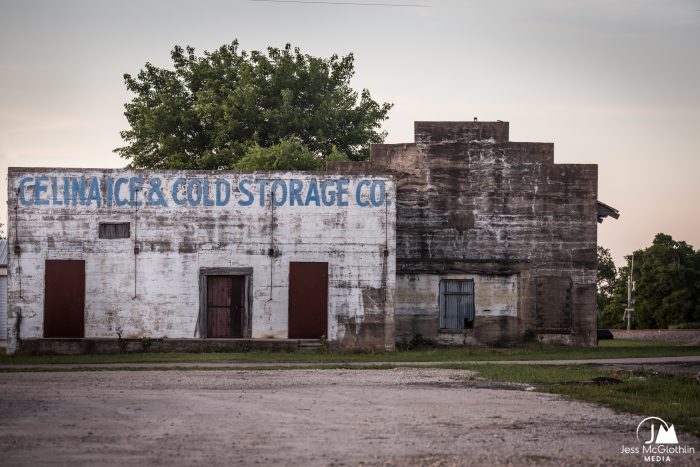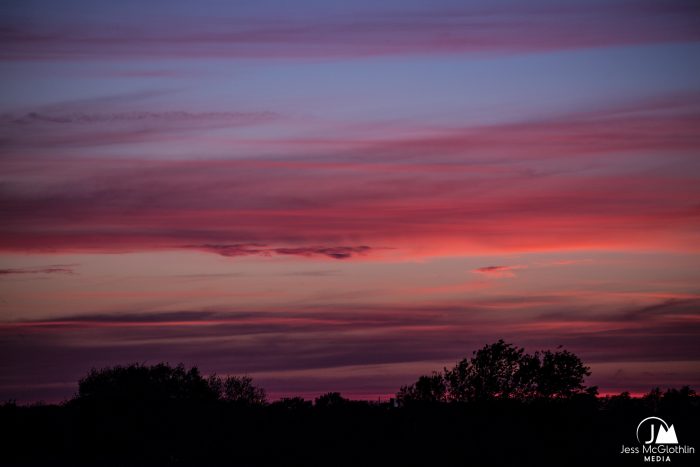 I’d never thought about having a “pivot” section of my business plan for a global pandemic. I never really considered what would happen if I couldn’t leave my home; if I couldn’t get on a plane and get places. Never planned for what would happen when the local market ran out of meat, or we couldn’t be around other human beings.
I’d never thought about having a “pivot” section of my business plan for a global pandemic. I never really considered what would happen if I couldn’t leave my home; if I couldn’t get on a plane and get places. Never planned for what would happen when the local market ran out of meat, or we couldn’t be around other human beings.
The business plan, the one I drew up eleven years ago with big aspirations, didn’t really account for what would happen when people became afraid of other people because of something we couldn’t see.
As I kid, I’d written a handful of fiction stories that touched on some of the same themes; words on paper for my reading only. About people adapting when the world changes rapidly and dramatically; surviving when the “ordinary” suddenly doesn’t exist. Can’t say I really expected to live something similar, and yet in a way so wholly unanticipated.
But here we are, in the something-month of a global pandemic, and the old paradigm—the one we’d all built our lives around—is gone. The world shifted dramatically within the space of weeks. New lines were drawn in the sand, new sides were taken. Fear became a fact of daily life for a while; mostly because true facts were scarce and, when they were available, they were buried. The world’s changed, and there’s no rule book.

My business, like so many others, is pivoting. Adapting. Changing. I’ll still be traveling as soon as it’s possible; camera in hand and notebook in my pocket. The why isn’t going to change. The how might shift for a while.
The 2020 work schedule was thrown out the window in March, when I got off the plane after a project in Chile, where I’d been wholly unconnected, camping in the Patagonian wilderness and far from the news cycle, and saw a year’s worth of trips, clients, and projects vanish in the space of a week.
It wasn’t a great week.
But we adapt. It’s what we do.
One of my favorite quotes, jotted into a notebook years ago (from a book long since forgotten), is this:
“Sometimes things go to hell – it’s a natural order of things, they simply can’t stay simple. The difference between a pirate and a sad slob of a man who thought he could be one is the nerve and ability to unfuck things when needed.
Or fucking them up, whatever the situation requires.”
And so, piece by piece, I’ve been working on unfucking my business world.
I’ve spent a lot more time writing, confined to my 550-square-foot apartment here in Missoula, working with a few clients I’m very grateful for. I’ve spent more time on video call these past three months than I’ve ever wanted to. My “desk” (in reality a Costco plastic folding table and a balance ball) offers those joining me on calls a scenic view of my camera gear shelving unit and, on occasion, a fly tying vise.
I’ve traveled within the United States to document current events, and caught weird little moment of history through the lens of a beaten camera. Empty airports and empty streets.
I was the only person waiting on the curb at a DFW Airport terminal in April, a camera in hand and a press pass in my pocket. It felt a bit like the apocalypse, but with a sunny wind in my hair and the smell of Texas instead of whatever I’d imagined as a child.
I spent long hours walking the streets of Missoula, seeing people cross the road to avoid waking next to me; worried to pass another human being on the sidewalk. I counted stuffed bears in windows, and soaked in children’s chalk scrawls on the sidewalk. I listened to countless hours of music while my brain worked.
We had an earthquake here in Missoula, on week six or eight or something (they run together now), and I remember watching a picture come off the wall, and watching with an odd sort of detachment. Thinking, “Okay, what next?”
I’m grateful to live near the tiny little airport here in Missoula. Early on I’d lay awake at night, listening for the planes that were due to land. I memorized the flight schedule—at one point less than four flights a day—listening for each incoming plane, and was grateful every time I heard the engines in the air. It meant something was still happening; someone was still flying somewhere. Now, the wildland firefighting planes have joined the other air traffic and I hear more planes overhead. Any time a firebomber with an orange tail crosses overhead I smile; remembering the old World War II firebombers than flew over northwestern Montana when I was a child. These newer planes carry a different sound, but they still bring back memories of a time that, these days, seems very long ago.
We adapt, don’t we? I’m exceedingly grateful to the clients who have shifted to writing work this spring instead of my normal writing / photography combination—you’ve kept me going. And I’ve never been more grateful for the blank page; one day last week I drank a French Press full of coffee and scrawled more than 14,000 words on the page before coming up for air. Nothing that will be published; nothing that will see the light of day. But words on paper, which means they’re out of my head. And that, these days, is a good thing.
One of these days we’ll be traveling again. It’s going to be each person’s decision what travel will look like for them. I’m ready.
I’m not sure what the future will look like, but I know I’ll still be here, camera in hand and notebook in my pocket, looking for stories.
Nice to see you are hanging in there, Jess! Safe travels!
Thanks, Nancy! I hope you two are doing splendidly and making the most of it. Here’s to summer, at least!
Jess–thank you for the glimpse of your world in this odd, odd time. Thinking of you–thank you for your words and your heart shared on this page.
With love from Vermont–
Pam
Aw, Pam, big love from Montana! The Vermont crew has been on my mind a lot; I hope you are hanging in and finding little good moments in all this.